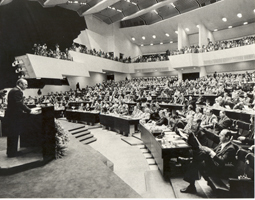

2 Still, the 1964 DoH was composed mainly of restrictions on medical research designed to safeguard the interests of individual participants.
#Declaration of helsinki code#
This requirement was absolute in the Nuremberg Code but was softened in the DoH to allow research on children, especially for vaccines, and on incompetent or 'captive' populations, such as prisoners and military personnel. This shift is most evident in the requirement to obtain the informed consent of participants.

In relation to the Nuremberg Code, however, the 1964 DoH represented a subtle shift in the balance between the responsibilities of the researcher to individual research participants and "to further scientific knowledge and to help suffering humanity", i.e. It drew heavily on traditional medical ethics, as summarized in documents such as the WMA Declaration of Geneva which requires of the physician that: "The health of my patient will be my first consideration." 1 In the absence of external constraints like legal frameworks and research ethics committees, it placed the responsibility to protect research subjects on medical researchers, who at that time were mostly physicians. The DoH, like its well-known predecessor, the Nuremberg Code, was intended to prevent mistreatment of research subjects such as had been practised by Nazi physicians. The reasons for this emphasis on protection of research subjects are not difficult to discern.

The advancement of medical science and the promotion of public health, although recognized as important objectives of medical research, were clearly subordinate to the well-being of individual research subjects. Its purpose was to provide guidance to physicians engaged in clinical research and its main focus was the responsibilities of researchers for the protection of research subjects. The DoH was first adopted at the 1964 WMA General Assembly in Helsinki. I will use the World Medical Association (WMA)'s Declaration of Helsinki (DoH) to demonstrate that, while concern for the individual has predominated over the needs of public health since World War Two, in recent years there has been some movement towards redressing this imbalance. The focus of this paper is the conflict between individual and public health in the ethics of research on humans. Conflicts do exist - over issues including funding, treatment, duties, rights and preferences. However, the situation is not quite that simple. In theory, there should be no conflict between the two - the public consists of individuals and public health can be considered as the sum of the health of all those individuals. The Declaration of Helsinki and public healthĭetermining the optimal relationship between public health and individual health is a major ethical challenge for health systems and providers.


 0 kommentar(er)
0 kommentar(er)
